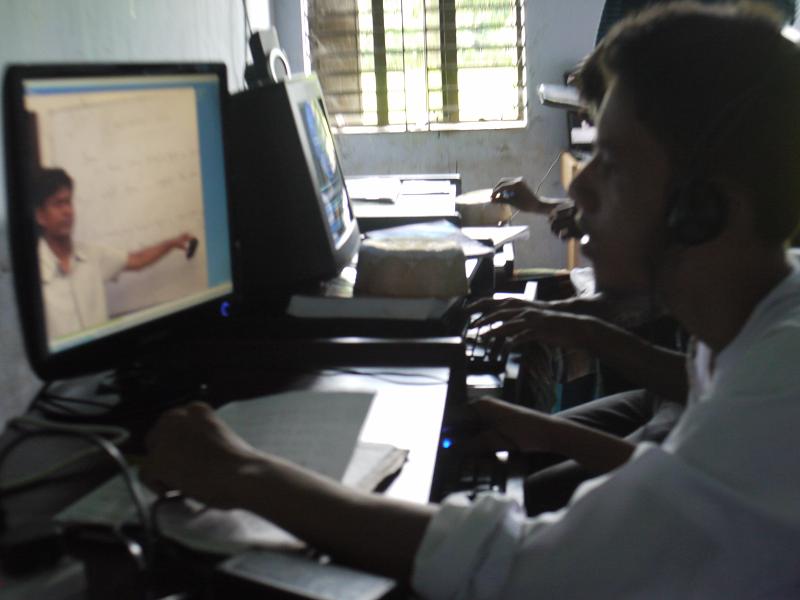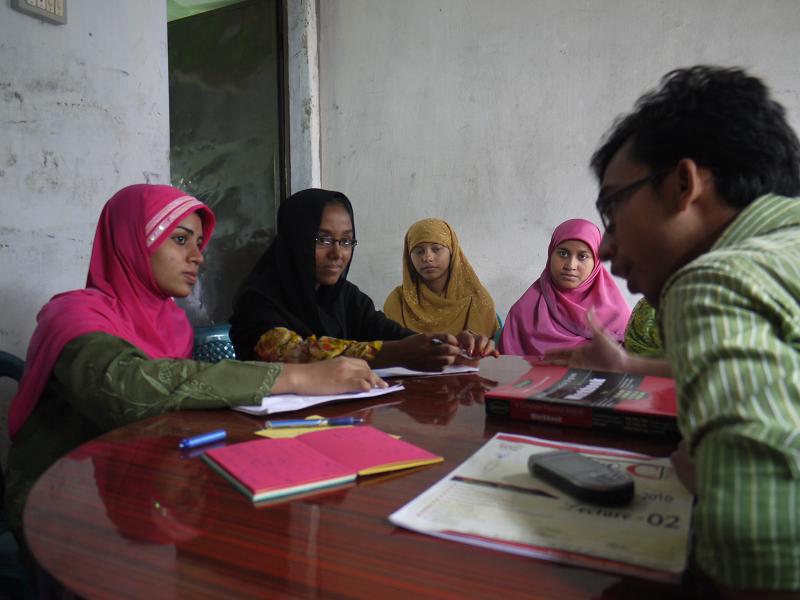Grameen Change Makers Program (GCMP) (in Japanese) (Ref.1) is a program launched two years ago in Bangladesh by the students of Waseda University, Mr. Saisyo, Mr. Miyoshi and their friends. In this program, Mr. Saisyo, currently on leave from Waseda University, set up ‘The Dragon Cherry Blossoms e-education’ project in collaboration with the Grameen Foundation. (in Japanese) (Ref.1)
Mr. Saisyo encountered many problems and hardships in the process of carrying out this project. From such experience, he reports, that he organized a 7 hours’ bus tour for the students in this project to see ‘Dhaka University’, the top university of Bangladesh. The objective of this project is to let the poor village high school students challenge this university. I must say that such kind of idea is not likely to emerge unless you are on the site in person. Now, I have at hand the latest report-2 describing in detail what actually happened, the background of this tour (in Japanese) as well as the local newspaper coverage. (in Japanese)
In his recent e-mail Mr. Saisyo writes:
‘Now we have only one month to go for the entrance exams of Dhaka University!
Students were very highly motivated after the study tour to Dhaka University. The results of the practice exams are gradually improving.
Currently 23 students are working in this project.
In accordance to the results of Dhaka University practice entrance exams we divided students into 4 groups
Team A, 5 students: Excellent
Team B, 5 students: Good
Team C, women students: 5
Team D, 13 students: Average
Every week the students move up and down among those groups by their test results. This will lead the students to competition.
Students in AB teams are particularly highly motivated so we say to each other that we actually could expect good results.
I will return to Japan temporarily in early October for some required procedures at Waseda University. I hope to report to you more when I see you then.’
Anyway, the ideas of this project came from personal experience of Mr. Saisyo, his failure in his high school years and overcoming of the failure. This process is very important for thinking of and creating plans in the real world. When we talk about importance of ‘on the site competency’, I think what we are really talking about is the ‘real personal experiences’ as we see in his case. Things will not be the same if you just sit down and think in your head.
Mr. Miyoshi, on the other hand, has been back again to Bangladesh. Now, he took off yesterday for another adventure to the world, a journey of self discovery.
Today, we had a gathering of students who have been to Bangladesh this summer to listen to each others’ reports of their experiences. Although it was a holiday, many youths came as well as the representatives of the supporting companies such as HIS (in Japanese) and Sunstar. Professor Seiichiro Yonekura of Hitotsubashi University, Dr. Hideo Abe, formerly working for JICA, also participated to make comments on the reports. We had a wonderful time for 4 hours of Sunday evening..
The students chose their own themes and formed group and worked together to present a project proposal. I could see that everyone learned a lot from their first hand experience in Bangladesh. Also, this process itself was a good chance for discovering their ‘self’. Students, once ‘abroad’, will begin to see and feel themselves as individuals. This will also lead them to see Japan from outside. Then, I imagine, they will begin finding and following their mind, heart and intuition, and find what they want to do, how they would choose their career.
Each student felt that they have changed a lot (Ref.1) It is my firm belief that opportunities like this will form ‘dots’ that connect youths to the broad world in building their future career.

